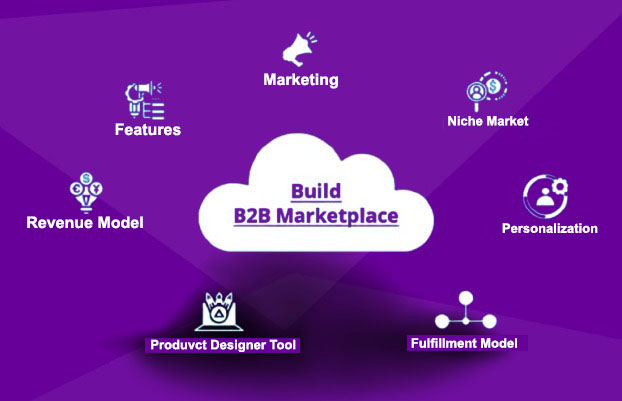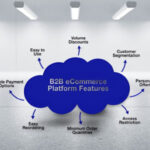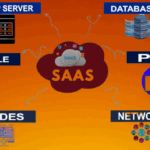
B2B Marketplace: The Future of Business-to-Business Commerce
In today’s digital economy, the rise of online marketplaces has transformed the way businesses connect, trade, and grow. While most people are familiar with B2C (business-to-consumer) marketplaces such as Amazon, eBay, or Shopee, an equally powerful but often less discussed segment is the B2B (business-to-business) marketplace. This model is reshaping global trade, enabling companies to buy and sell products or services at scale, streamline procurement, and access global opportunities with unprecedented ease.
This article explores the concept of a B2B marketplace in depth—its definition, evolution, benefits, challenges, key players, and the future of this transformative business model.
Understanding the B2B Marketplace
A B2B marketplace is an online platform where businesses interact, negotiate, and conduct transactions with other businesses. Unlike B2C, which focuses on individual consumers, B2B marketplaces cater to manufacturers, wholesalers, retailers, suppliers, and service providers.
These marketplaces typically serve as intermediaries, offering a digital ecosystem where companies can:
-
Showcase products or services.
-
Compare suppliers and prices.
-
Manage procurement and logistics.
-
Build long-term partnerships.
-
Access financing or credit facilities.
Some well-known global B2B marketplaces include Alibaba, ThomasNet, IndiaMART, Amazon Business, and Made-in-China. Each of these platforms connects millions of businesses worldwide, enabling cross-border trade and fostering global supply chains.
Evolution of the B2B Marketplace
The concept of businesses trading with one another is centuries old. However, the digital transformation of B2B commerce accelerated with the rise of the internet in the late 1990s and early 2000s.
-
Traditional Trade – Historically, businesses connected through trade fairs, word of mouth, or direct sales networks.
-
Early E-commerce Platforms – Companies like Alibaba pioneered the online B2B model, offering digital catalogs and supplier directories.
-
Advanced Marketplaces – With AI, big data, and logistics innovations, modern B2B marketplaces now provide end-to-end solutions including payment gateways, supply chain management, and credit risk assessment.
Today, B2B marketplaces are no longer just listing directories. They are full-service ecosystems, integrating procurement, financing, analytics, and cross-border logistics under one digital roof.
Types of B2B Marketplaces
Not all B2B marketplaces are created equal. They can be classified into several categories depending on their focus and business model:
1. Horizontal Marketplaces
These platforms serve multiple industries, offering a wide variety of products. Example: Alibaba, Amazon Business.
2. Vertical Marketplaces
These focus on a specific industry or niche. Example: Go4WorldBusiness (industrial goods), Global Sources (electronics).
3. Service Marketplaces
Instead of physical goods, these platforms connect companies with service providers. Example: Upwork Enterprise, Fiverr Business.
4. Procurement Marketplaces
Built for corporate buyers, these marketplaces streamline bulk purchases and procurement workflows.
5. Managed Marketplaces
They offer value-added services like logistics, quality assurance, and financing to make transactions smoother and safer.
Benefits of a B2B Marketplace
The surge in popularity of B2B marketplaces is driven by their tangible benefits for both buyers and sellers.
1. Global Reach
A small manufacturer in Vietnam can showcase its products to a buyer in Germany without needing physical presence in Europe.
2. Cost Efficiency
By digitizing procurement, companies reduce administrative overhead, paperwork, and travel costs.
3. Transparency
Marketplaces provide access to price comparisons, product reviews, and supplier ratings, enabling better decision-making.
4. Scalability
Businesses can quickly scale operations by accessing larger markets and automating transactions.
5. Trust & Security
With escrow payments, verified suppliers, and dispute resolution, many B2B platforms ensure safer transactions.
6. Data & Insights
Analytics tools allow buyers and sellers to understand market demand, optimize pricing, and improve supply chain strategies.
Challenges Facing B2B Marketplaces
Despite their advantages, B2B marketplaces face unique challenges that differentiate them from B2C models.
1. Complex Transactions
Unlike B2C, B2B transactions often involve bulk orders, custom specifications, and longer negotiation cycles.
2. Payment Issues
Cross-border payments, credit facilities, and differing regulations create friction in financial transactions.
3. Trust & Verification
Fraudulent suppliers or buyers remain a concern, making verification and compliance critical.
4. Logistics & Fulfillment
International shipping, customs clearance, and delivery timelines complicate logistics management.
5. Adoption Barriers
Some traditional businesses still prefer offline trade, limiting marketplace adoption in certain regions.
Key Global B2B Marketplaces
Here are some of the most influential B2B marketplaces shaping the global trade landscape:
-
Alibaba.com – The world’s largest B2B marketplace connecting manufacturers (mainly in China) with global buyers.
-
IndiaMART – India’s leading B2B platform serving millions of SMEs.
-
ThomasNet – A U.S.-based platform specializing in industrial products and services.
-
Amazon Business – Amazon’s B2B extension, providing procurement solutions for organizations.
-
Made-in-China.com – Another major Chinese B2B player focusing on international exports.
Each platform offers different features, but all share the common goal of connecting buyers and sellers in a digital-first environment.
Technology Driving B2B Marketplaces
The success of modern B2B platforms is underpinned by emerging technologies:
-
Artificial Intelligence (AI) – Used for product recommendations, fraud detection, and predictive analytics.
-
Blockchain – Enhances trust by enabling transparent transactions and secure smart contracts.
-
Big Data Analytics – Helps companies understand buyer behavior, optimize pricing, and forecast demand.
-
Cloud Computing – Provides scalability and integration with ERP systems.
-
IoT & Logistics Tech – Improves supply chain tracking and real-time inventory management.
These technologies are not only improving operational efficiency but also transforming the customer experience in B2B commerce.
Case Study: Alibaba’s Impact
Alibaba is perhaps the best example of how a B2B marketplace can reshape global trade. Founded in 1999, Alibaba started as a simple supplier directory. Today, it serves as a comprehensive ecosystem, offering cloud services, digital payments (Alipay), and logistics (Cainiao).
Key lessons from Alibaba include:
-
Building trust through supplier verification.
-
Offering trade assurance to secure payments.
-
Diversifying into technology-driven services beyond just a marketplace.
Alibaba’s success illustrates the power of ecosystem thinking in B2B commerce.
The Future of B2B Marketplaces
As digital adoption accelerates, B2B marketplaces are expected to become the dominant channel for global trade. Analysts predict that by 2030, a majority of B2B transactions will occur online.
Key future trends include:
-
AI-Powered Personalization
Just like B2C platforms, B2B buyers will receive customized product recommendations. -
Integration with ERP & Supply Chain Systems
Marketplaces will seamlessly integrate into company workflows, automating procurement. -
Rise of Niche Marketplaces
Specialized platforms focusing on specific industries will thrive. -
Sustainable Sourcing
Buyers will prioritize suppliers with eco-friendly practices, pushing marketplaces to provide transparency in sourcing. -
Cross-Border Trade Simplification
Advances in digital logistics, customs automation, and blockchain will reduce barriers to international trade.
Why B2B Marketplaces Are Critical for SMEs
Small and medium-sized enterprises (SMEs) are the backbone of global economies, and B2B marketplaces provide them with unprecedented opportunities.
-
Level Playing Field – SMEs can compete with large corporations on global platforms.
-
Access to Credit – Many marketplaces now offer financing and digital credit lines.
-
Reduced Marketing Costs – Instead of building their own online presence, SMEs can leverage marketplace visibility.
-
Global Networking – SMEs gain exposure to international partners and buyers.
This democratization of global trade is one of the most impactful aspects of the B2B marketplace revolution.
Conclusion
The B2B marketplace is more than just a digital catalog—it is the future of business-to-business commerce. By leveraging technology, these platforms reduce inefficiencies, build trust, and connect businesses worldwide. While challenges like complex transactions and logistics remain, the benefits far outweigh the drawbacks.
As industries continue to digitize, B2B marketplaces will become integral to global trade, reshaping supply chains and empowering businesses of all sizes. From SMEs to multinational corporations, every company has something to gain in this evolving ecosystem.
In the next decade, the digital-first B2B marketplace will not just be an option—it will be the standard. Businesses that embrace this model early will enjoy competitive advantages in reach, efficiency, and scalability, setting the foundation for sustainable growth in a rapidly globalizing world.
















